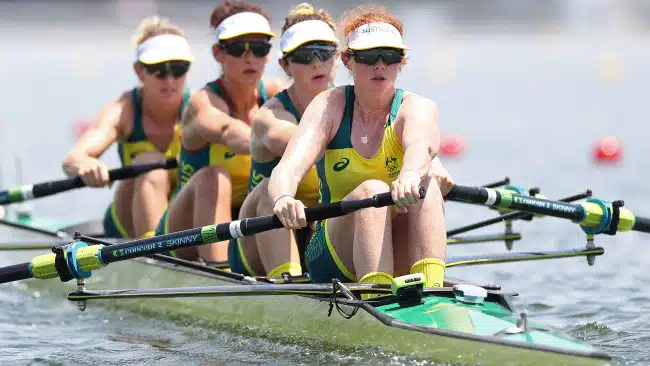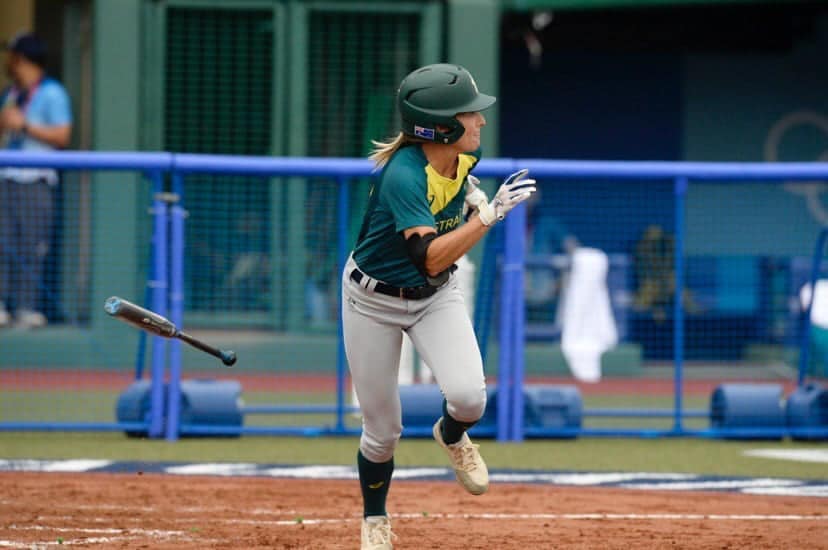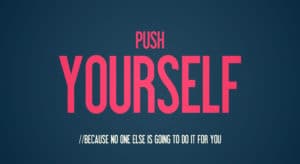What can we learn from our Olympians? – Jennifer Oaten

There are 11,326 athletes from 205 countries competing for gold at the Tokyo Olympics. Annabelle McIntyre (Class of 2013) and Leah Parry (Quackenbush, Class of 1997) were both selected as part of the Australian team. Annabelle competed in women’s coxless pair and coxless four rowing while Leah competed in the women’s softball team. Both were hoping to fulfill their dream of winning gold. Annabelle achieved her dream in the coxless four and Leah’s team finished in fourth place just missing out on a bronze medal.

Challenges of Tokyo
Our Olympians have sacrificed so much for their dream. They spent many hours training and then were faced with the postponement of the Games due to COVID-19. They then faced another year of sacrifice, and in some cases, had to train in isolation. Some of their team members retired, and the remainder chose to continue, knowing that there was again a possibility of the games being cancelled. How did they continue to remain focussed, maintain their mental health, and continue their quest for gold?
"It was tough in the lead up to the games as many international regattas were cancelled, and there was much concern about whether the postponed Olympics would even go ahead."
Annabelle McIntyre - Class of 2013 Tweet
They boarded the plane amid COVID-19 to endure quarantine, mask-wearing and daily tests. No family support team was permitted nor spectators, and each day the heat and humidity that Japan delivered added another complexity. And yet, these athletes showed courage and commitment, making Australians incredibly proud, not to mention the Santa Maria College community who have followed their journey very closely.
Charactertistics of our athletes
There’s no doubt talent, physical skill, and strength play a significant role in their success, but mental toughness and resilience are what ultimately enables athletes to win medals.
"At the elite level, talent is a given, and mental strength is what sets apart athletes who qualify for the Olympics from athletes who don't."
Shayne Hanks - Sport Psychologist Tweet
Success comes to athletes who can perform to their best and handle the intense pressure and expectations. Even if you’re not an athlete, mental toughness helps us overcome adversity and successfully follow through on anything we set out to do. This may be in your education, work, health and life. Mental toughness is far more beneficial than physical strength.
What can we learn from our athletes?

1. BELIEVE IN YOURSELF
Champions in sport may show speed, agility or strength, but they all show determination, grit and self-belief. Olympians deal with gruelling training schedules, and when they compete, they are prepared and give it their best shot.
According to Dr Loehr, world-renowned performance psychologist, mental toughness is the ability to bring to life whatever talent and skills you have on-demand.
Schools need to encourage students to think like athletes, to believe anything is possible and that if they have done the preparation, they can achieve their best. They should be excited by challenges, not nervous, face them head-on, and believe they can overcome any hurdle they meet.
Gold medal swimmer Arianne Titumus spoke about having passion, commitment and being focussed on her goal. She was so focussed she did not know or see where the other swimmer was, although she was right by her side.

2. PUSH YOURSELF
Developing mental toughness is like building your muscles. You need to put in the work to see improvement. Have you heard of the 40% rule? The 40% rule, first coined by David Goggins, is a term used to explain that when your mind and body start to tire and feel like giving up, you’re only at 40 percent of what you truly can achieve. Your mind has a massive advantage over you because it knows your fears, it knows your insecurities, and all of your self-doubts, all of which can stop you and make you give up. Focus on making small decisions every day that push you outside your comfort zone. These small successes will give you courage. The courage to continue to grow and achieve a level of learning that you thought was beyond you.
3. HAVE A PLAN

Zac Stubblety-Cook, Australia’s 200m breaststroke gold medal swimmer, shared the following, “I knew there would be a few people who would go for it early. I’m just glad I was able to execute my race plan and do what I do.” Zac had his own plan. Others did not influence him, he was committed to his way of achieving, and he stuck to the plan and won gold.
Before our athletes headed to the Olympics, they prepared for what might go wrong and what might distract them. A great example of this was when Jessica Fox gained bronze in the women’s K1 event. Jessica was the favourite for the gold but clipped a pole and incurred a penalty, and she received a bronze medal. Jessica showed incredible mental toughness by putting this behind her, winning the women’s C1 event, and obtaining her first gold in three Olympics.
Athletes consider these situations and plan how they will manage scenarios and get back on track after disappointment. Such strength is needed in these situations.
As parents and teachers, we can learn from this. We need to talk to our girls about managing disappointment, the worst-case scenario, and how they can move forward — reframing failure as an opportunity to grow and learn. Learning is not just about the endpoint. Make sure you take time to enjoy and acknowledge the journey, how you got there and what you learned along the way. Remember to create a plan with a clear method of achieving what you set out to accomplish.
We are so incredibly proud of our alumni, Annabelle and Leah, and what they have achieved personally and for Australia. We look forward to hearing the personal stories from these incredible role models on how believing in yourself, pushing yourself, and having a plan can lead to success at the Olympics and in learning and life.
Congratulations to all our Australian athletes!
References
Use the 40% rule to build mental toughness – brain boosted. https://brainboostedshop.com/blogs/blogs/the-40-rule
The Champion Mindset: How to Develop Mental Toughness in …. https://www.mayooshin.com/mental-toughness/
https://www.whereig.com/olympics/summer-olympics-participating-countries.html

With Laurissa Knowles From Valley Depths to Mountain Peaks (1993)
Laurissa Knowles (1993) has had an incredible career journey so far, from Santa Maria College Teacher to Celebrant and Councillor.

Elevating Spaces: Diana Ellis’ Signature Touch & Architecture Magic
What happens when you mix a love for art, travel, nature, and creativity with construction and building? You get the essence of Diana Ellis’ career!

The Power of Expectations in Shaping Student Success – Jennifer Oaten
Discover the transformative impact of expectations on student success. Learn how belief shapes outcomes in education and beyond.
- Adaptability, Confidence, ConnectingLearning2Life, Featured, Initiative, Resilience
Author: Santa Maria College
Santa Maria College is a vibrant girls school with a growing local presence and reputation. Our Mission is to educate young Mercy women who act with courage and compassion to enrich our world. Santa Maria College is located in Attadale in Western Australia, 16 km from the Perth CBD. We offer a Catholic education for girls in Years 5 – 12 and have 1300 students, including 152 boarders.






